We all love free stuff, don’t we?
The internet is awash in an endless stream of information – mostly free and valuable, yet susceptible to manipulation and misinformation. That’s why, to navigate it effectively, vigilance is crucial.
Data is a critical component of SEO content strategy. Basing your writing on reliable data shows a commitment to accuracy, building your authority and credibility in readers’ eyes.
This approach to content and accuracy maps to the signals that search engines use to determine things like E-E-A-T.
Using good data increases the quality of your content and also helps your audience navigate misinformation. Luckily, you absolutely can find data that is both free and trustworthy.
If you’re after solid data, explore this list of reputable, free data sources spanning diverse disciplines – all while avoiding the pitfalls of false information.
1. Google Dataset Search
This enables you to search available datasets that have been marked up properly according to the schema.org standard. You can search from almost 25 million datasets using Google’s Dataset Search.
While this could be viewed as a one-stop-shop for datasets that include data from sources like NASA and ProPublica, many niche datasets may be better for certain purposes, of course.
You’re shown the results, and each one is clickable to tell you the name of the dataset, when it was last updated, and a description.
With certain results, you get more information, such as the formats in which the dataset is available.
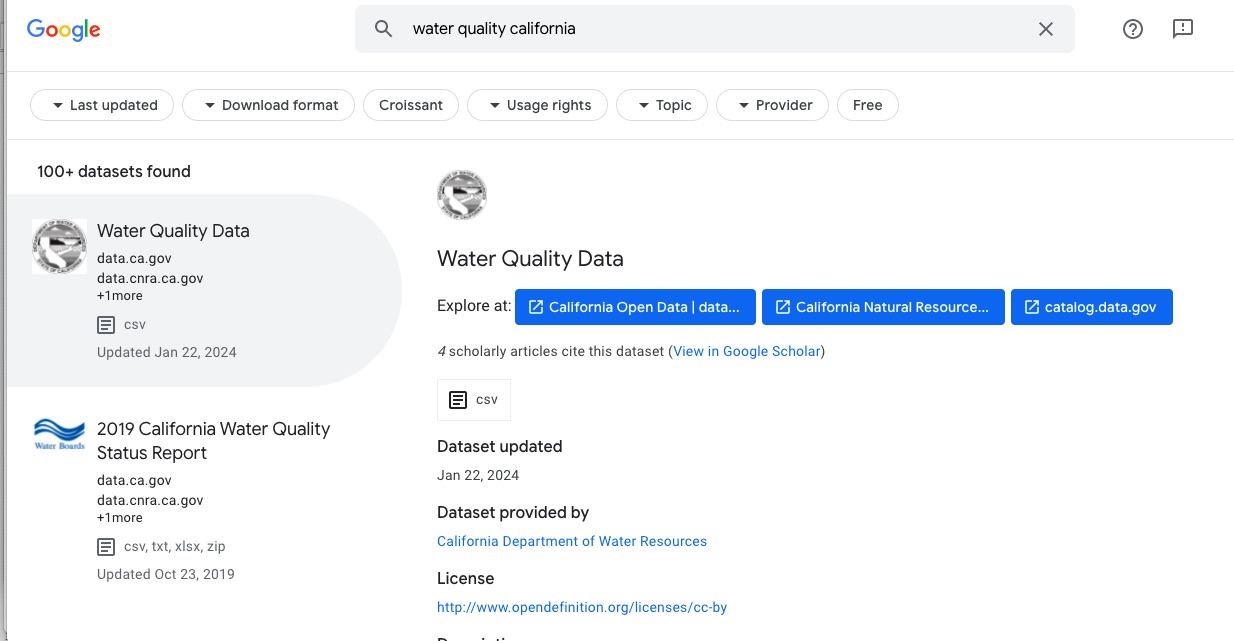 Screenshot from search for [water quality california], Google, February 2024
Screenshot from search for [water quality california], Google, February 20242. Google Trends
With this tool, you can search for keywords and see a variety of information about them, including interest over time, interest by region, related topics, and related queries.
According to Google,
“Each trend includes 5 years of historical data across the 210 Designated Market Areas (DMAs) in the US and now over 50 countries across the globe.”
You can select options, including which country (or worldwide) you want to see, narrow it down to categories, or confine your search to all of the web, images, news, shopping, or YouTube.
You can also compare your search to another topic.
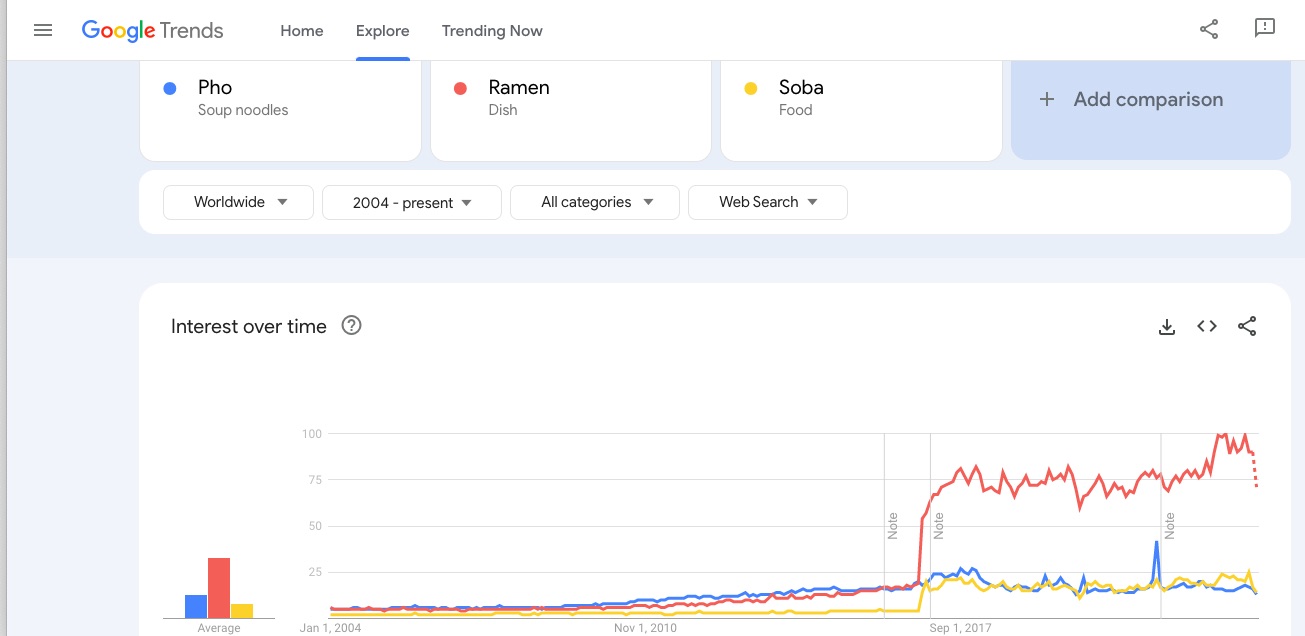 Screenshot from Google Trends, February 2024
Screenshot from Google Trends, February 20243. U.S. Census Bureau
This site allows you to get information related to population, the economy, and geography. You can browse by topic or search.
It’s a great tool if you need statistics to increase the quality of your content.
It offers some great visualizations you can embed within your content, too. It’s also very cool to see the world population updates.
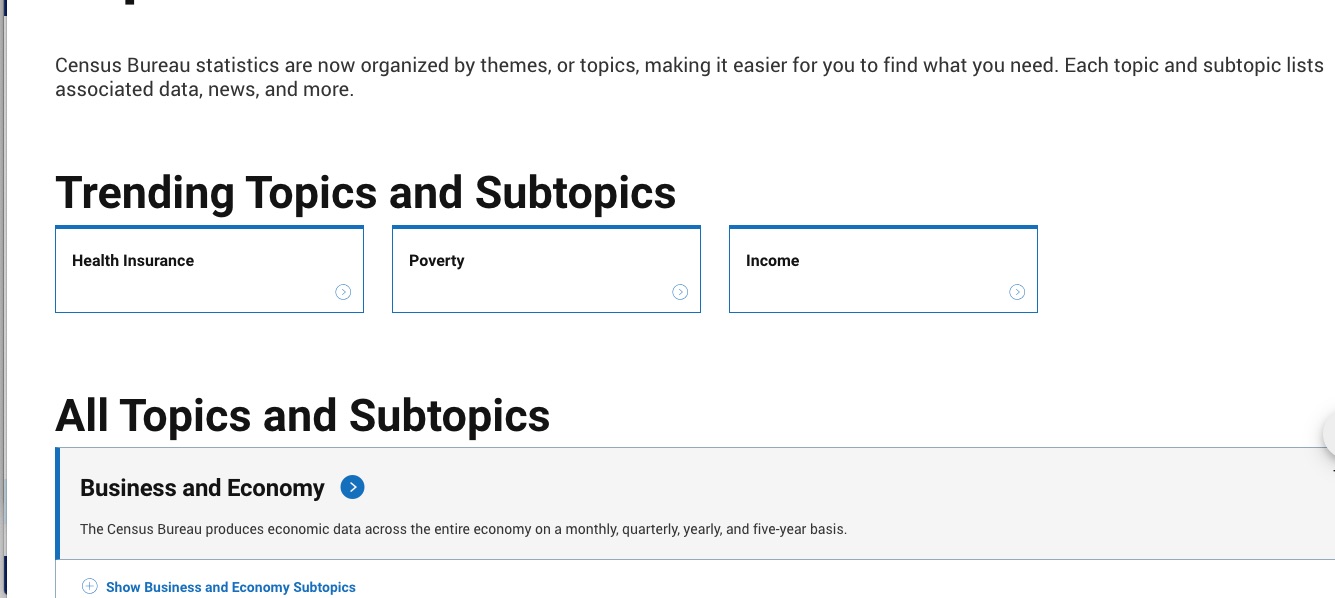 Screenshot from Census Bureau, February 2024
Screenshot from Census Bureau, February 20244. The Official Portal For European Data
Available data includes geography, finance, statistics, election results, legal acts, and information on crime, transport, health, the environment, and science research.
This platform, which provides access to more than 1.7 million datasets, is searchable and browseable.
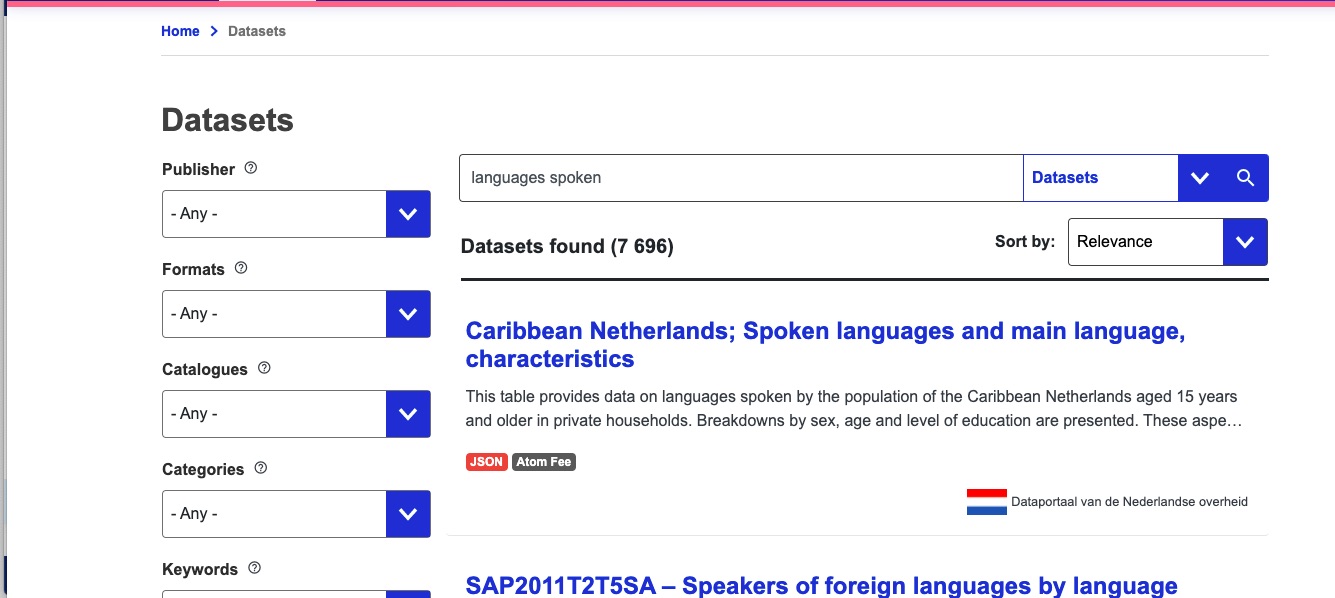 Screenshot from European Union, February 2024
Screenshot from European Union, February 20245. Data.gov U.S.
The home of the U.S. government’s open data, this site allows access to 288,289 datasets with information about a variety of topics provided by federal, state, local, and tribal governments.
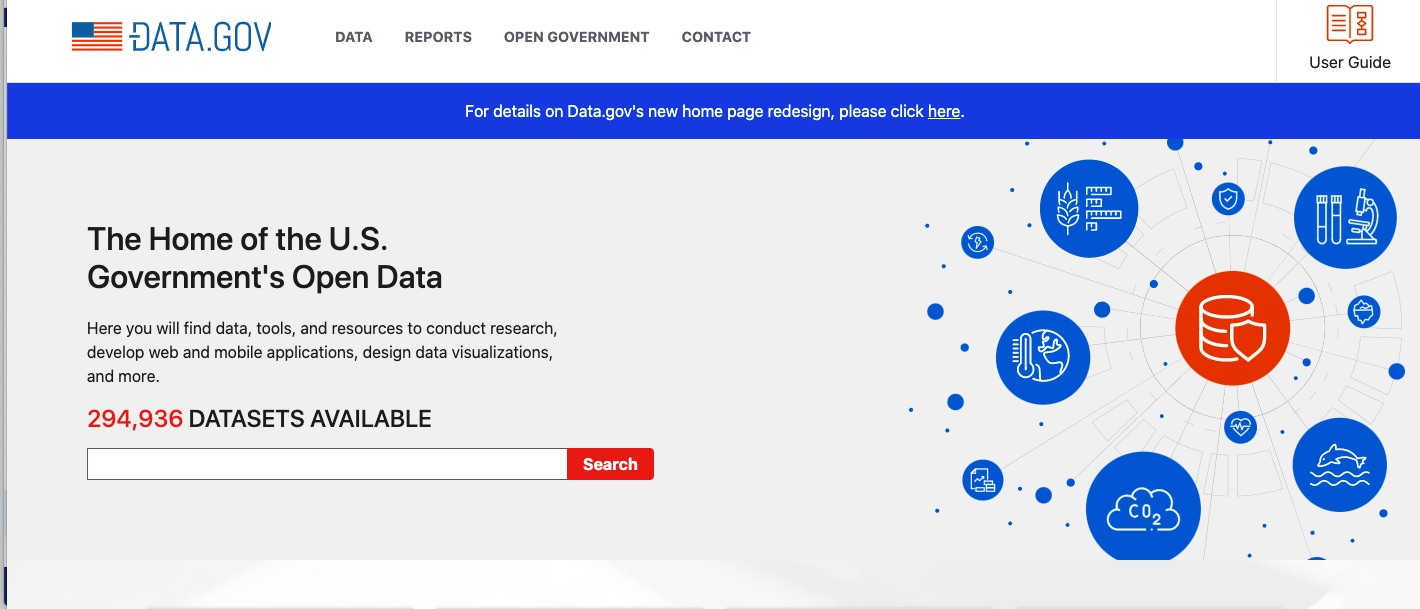 Screenshot from Data.gov U.S., February 2024
Screenshot from Data.gov U.S., February 20246. Data.gov U.K.
Similar to the U.S.’s Data.gov, this site allows access to U.K. data on a variety of topics.
Data is provided by the central government, local authorities, and public bodies.
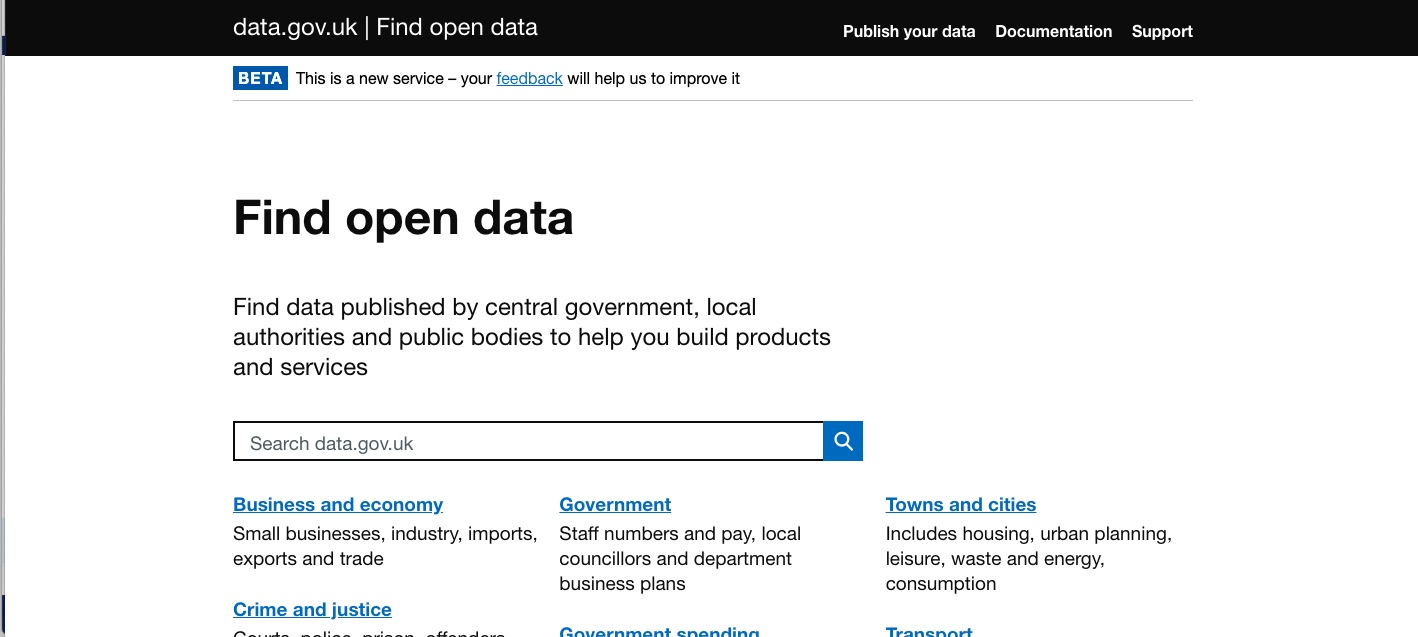 Screenshot from Data.gov U.K., February 2024
Screenshot from Data.gov U.K., February 20247. Health Data
Searchable topics include issues such as public health (especially good for COVID-19 data), medical devices, environmental health, substance abuse, mental health, and others.
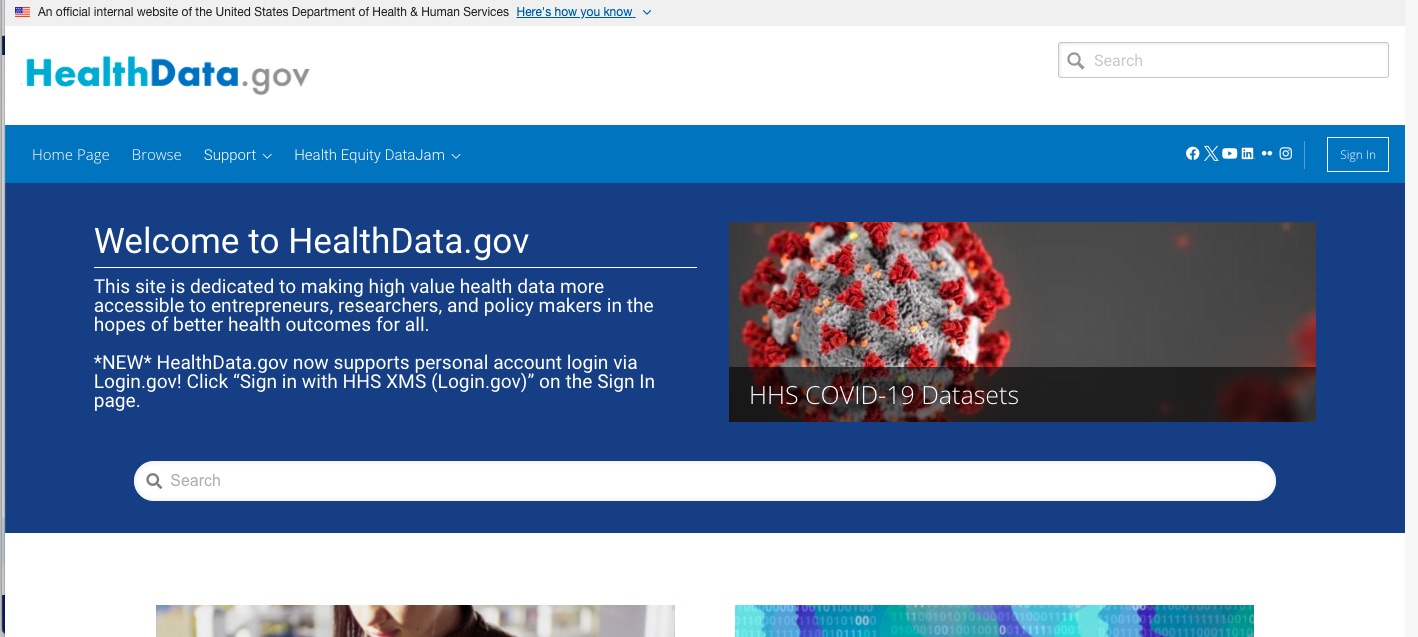 Screenshot from HealthData.gov, February 2024
Screenshot from HealthData.gov, February 20248. The World Factbook
Containing information on 265 world entities, this is a treasure trove of data that is updated weekly with information about the world.
You can select a country to view and then click on whatever topic you like (such as economy or transportation, for example). The site is also searchable.
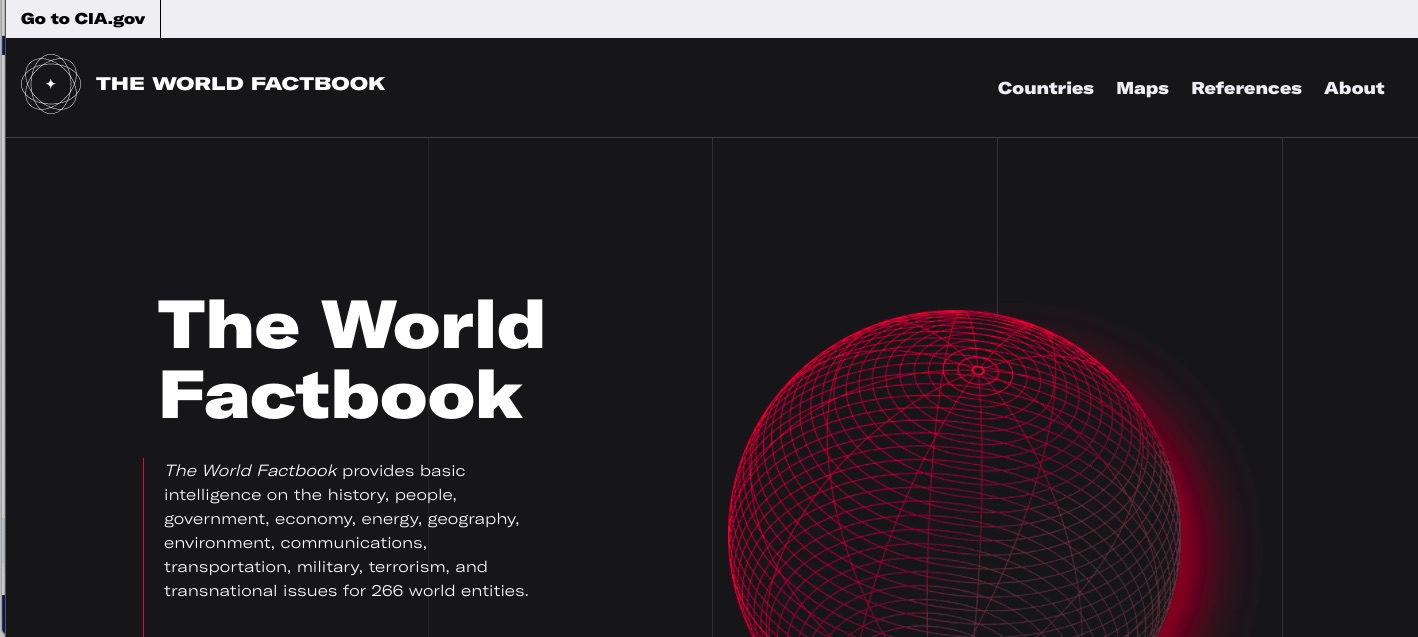 Screenshot from The World Factbook, February 2024
Screenshot from The World Factbook, February 20249. Altmetric
Altmetric does offer some paid plans, but it has a useful set of the top 100 most mentioned articles across 20 disciplines that have been published in a year, too.
2020 is the latest, but there are sets going back to 2013. It also offers a few free tools.
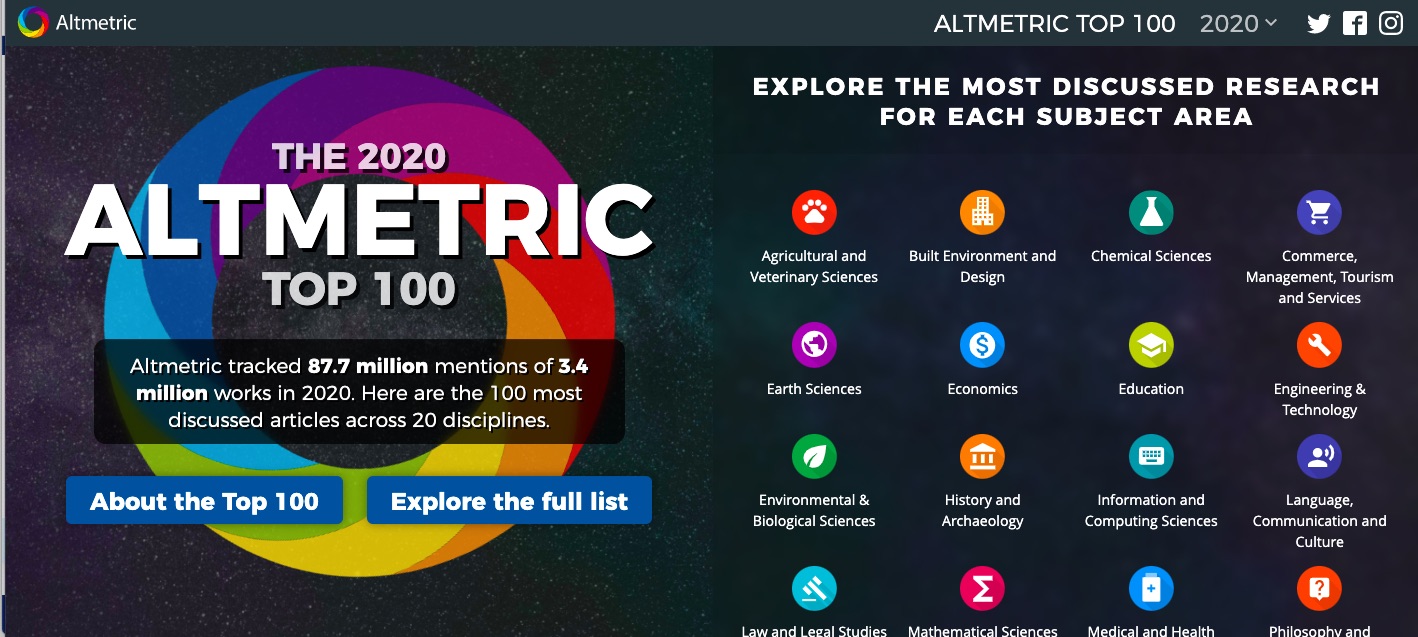 Screenshot from Altmetric, February 2024
Screenshot from Altmetric, February 202410. Open Corporates
The largest open database of companies in the world, Open Corporates gives you access to information to over 222 million companies.
You can search by companies or officers and limit your jurisdiction if you need to.
It also offers an API and bulk data plan.
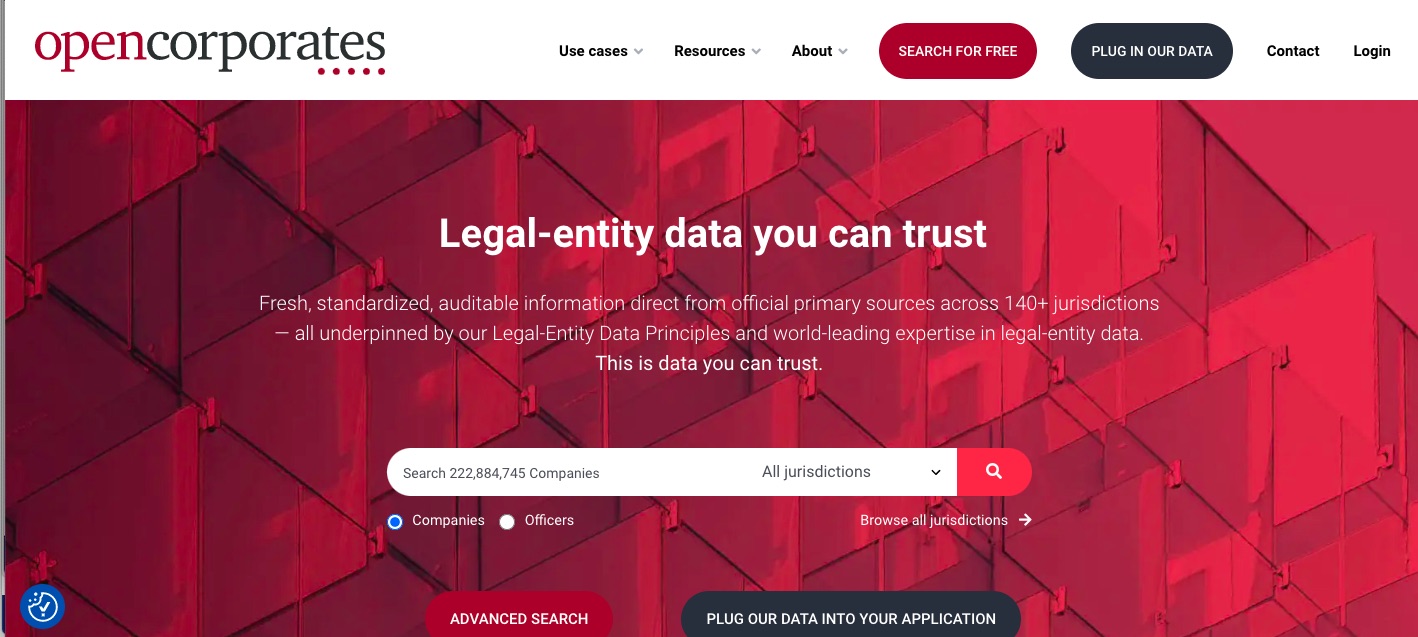 Screenshot from Open Corporates, February 2024
Screenshot from Open Corporates, February 202411. National Centers For Environmental Information
This covers geophysical, atmospheric, and oceanic data. It is currently the world’s largest provider of climate and weather information.
It also provides links to older tools that may not currently be available on the website but reside elsewhere.
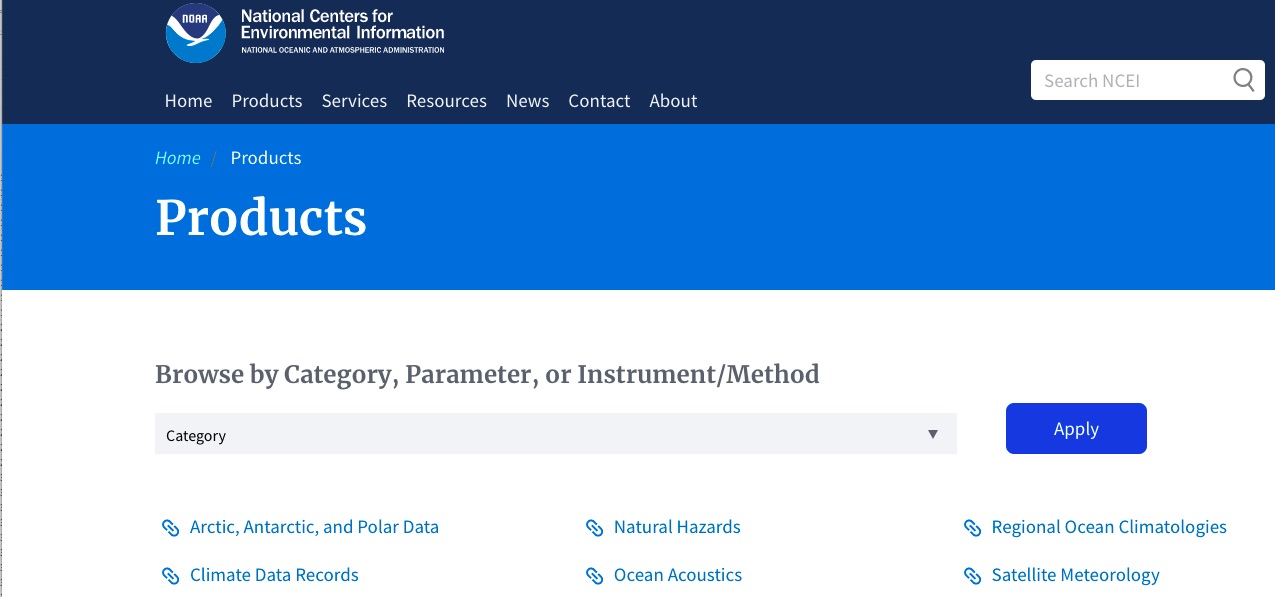 Screenshot from National Centers For Environmental Information, February 2024
Screenshot from National Centers For Environmental Information, February 202412. Datasets SubReddit
You do have to sign up, but it’s free. Here, you can search for datasets and find people giving information and requesting it.
Reddit, in general, is also a great place to look for information and see what’s trending.
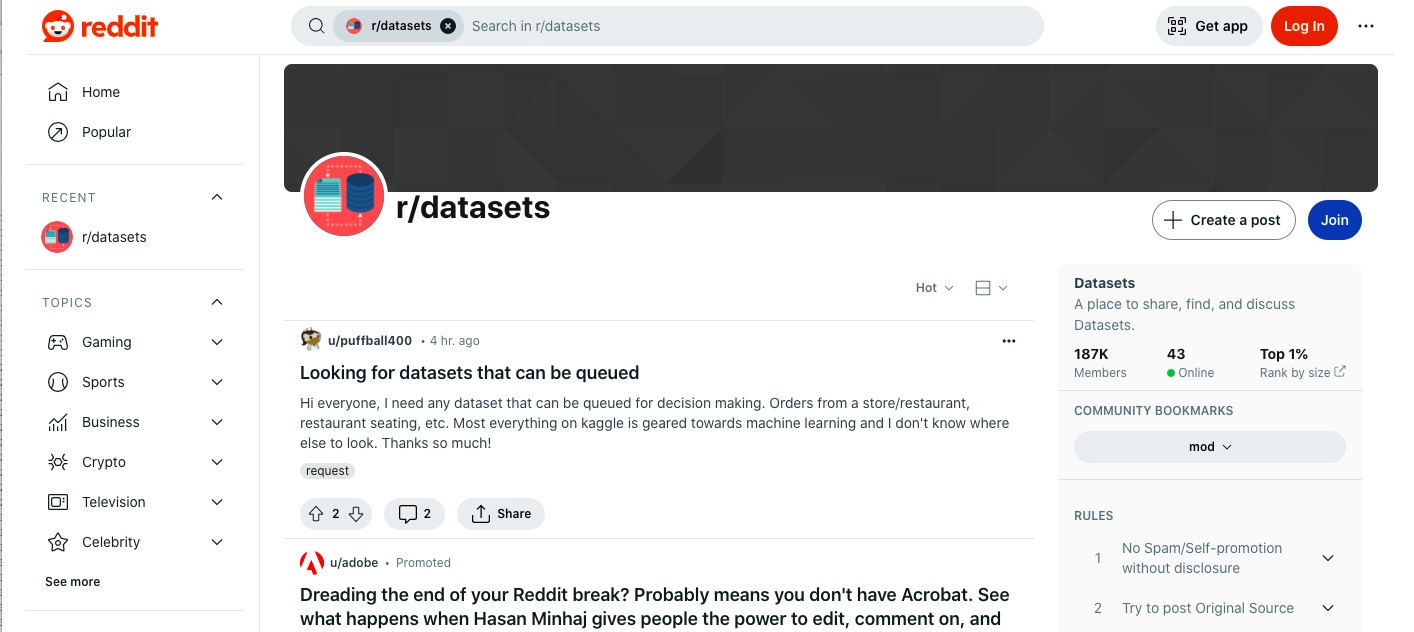 Screenshot from r/datasets, Reddit, February 2024
Screenshot from r/datasets, Reddit, February 202413. Kaggle Datasets
Kaggle currently has 384,881 datasets.
You can find data on anything, from famous iconic women to Los Angeles parking citations.
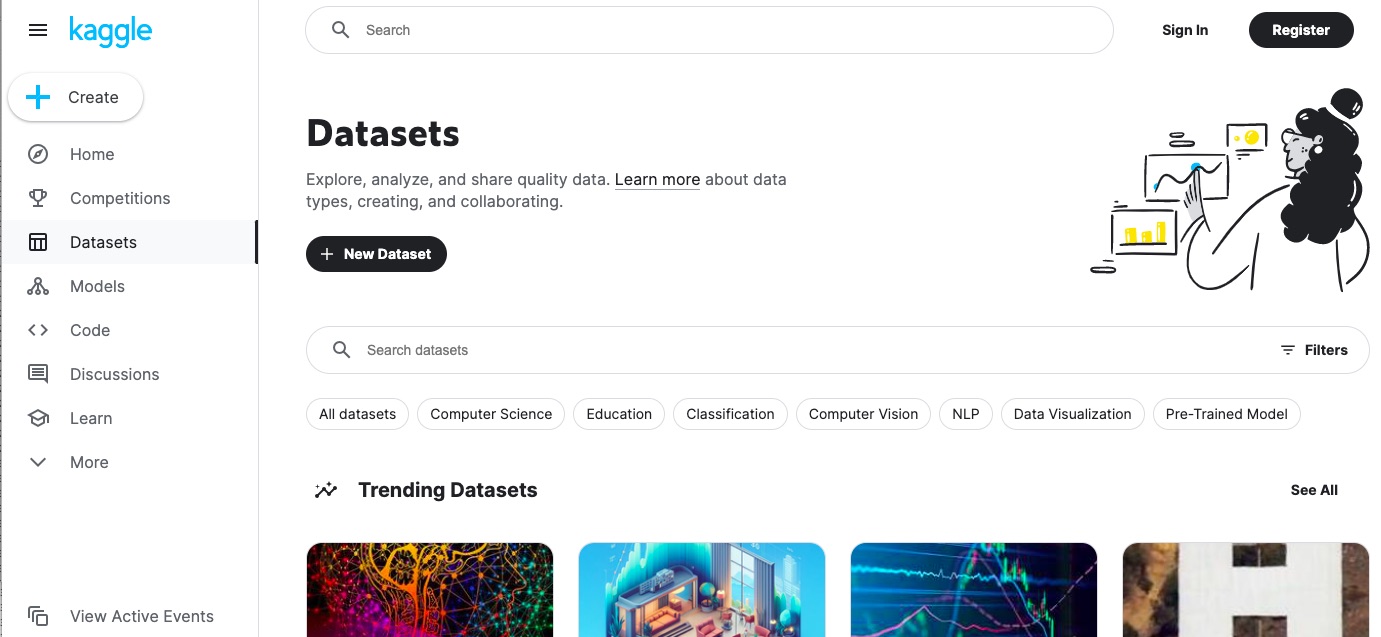 Screenshot from Kaggle, February 2024
Screenshot from Kaggle, February 202414. Earth Data By NASA
The Earth Observing System Data and Information System contains NASA’s earth observation data, which includes facts such as land surface temperature in a specific area and carbon flux.
You can access more than 33,000 Earth Observation data collections through the system.
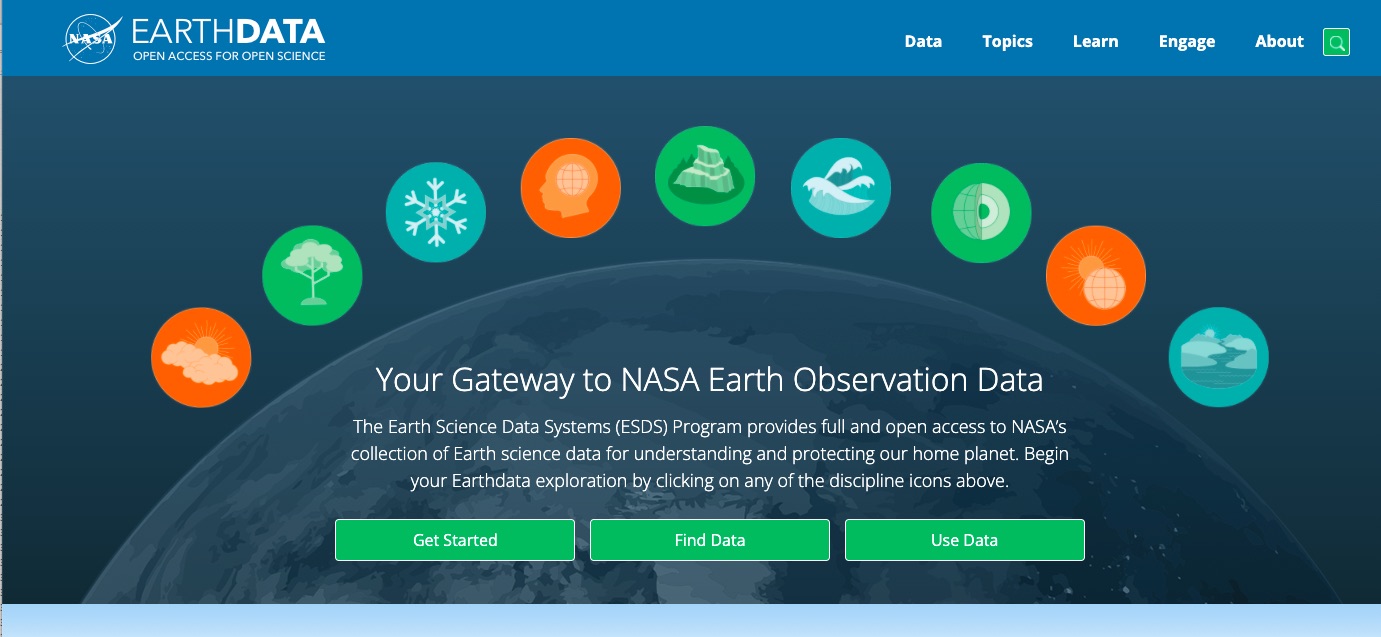 Screenshot from Earth Data By NASA, February 2024
Screenshot from Earth Data By NASA, February 202415. Pew Research Center
If you’re looking for sociological data, Pew Research is a great source. There are some interesting articles that you can find by browsing around, too.
It’s free, but you may need to sign up to view and download datasets.
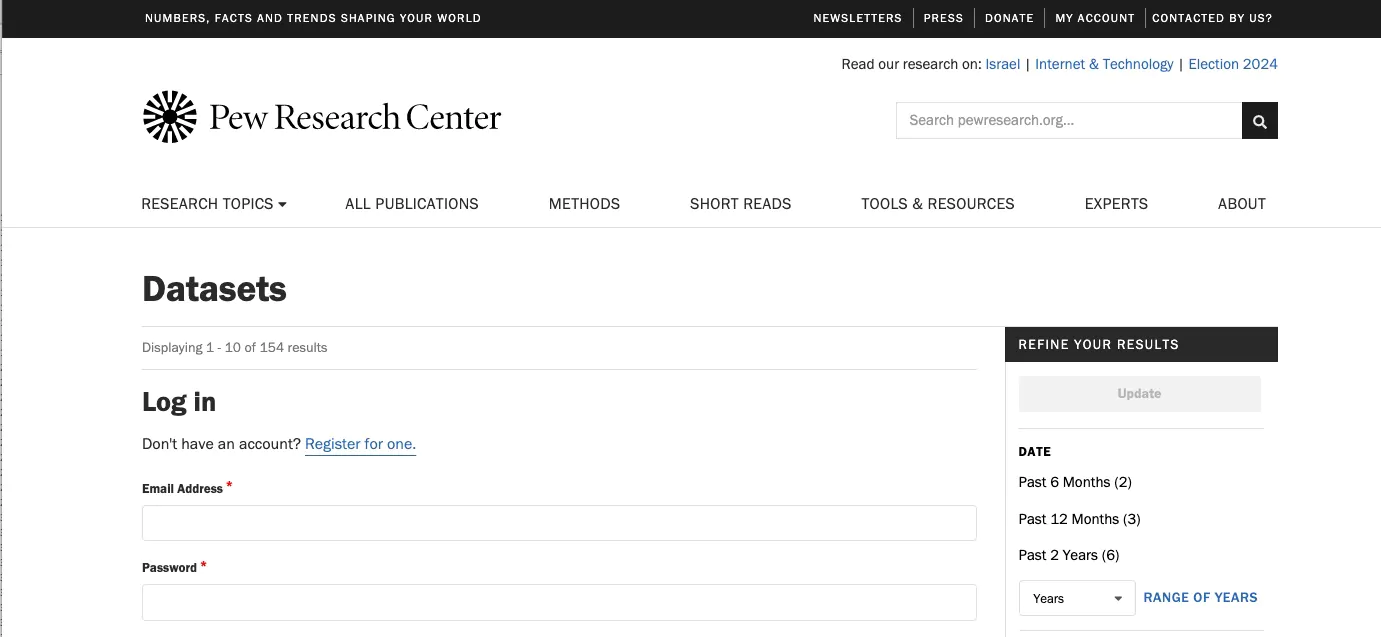 Screenshot from Pew Research Center, February 2024
Screenshot from Pew Research Center, February 202416. Centers For Disease Control And Prevention
Covering a wide range of health topics, this site gives you access to an incredible amount of data that is browseable and searchable.
You can even create your own filtered datasets through various topic-related portals.
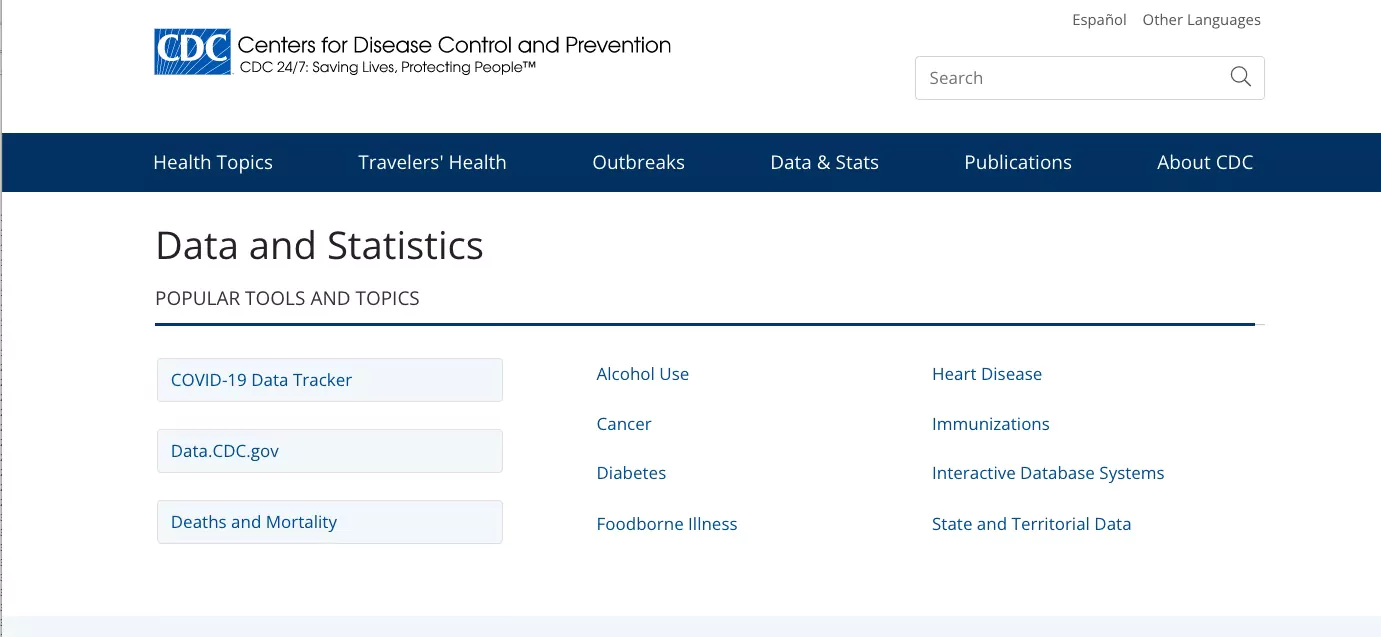 Screenshot from Centers for Disease Control and Prevention, February 2024
Screenshot from Centers for Disease Control and Prevention, February 202417. Bureau Of Labor Statistics
Here, you can find data about labor market activity, working conditions, and price changes in our economy.
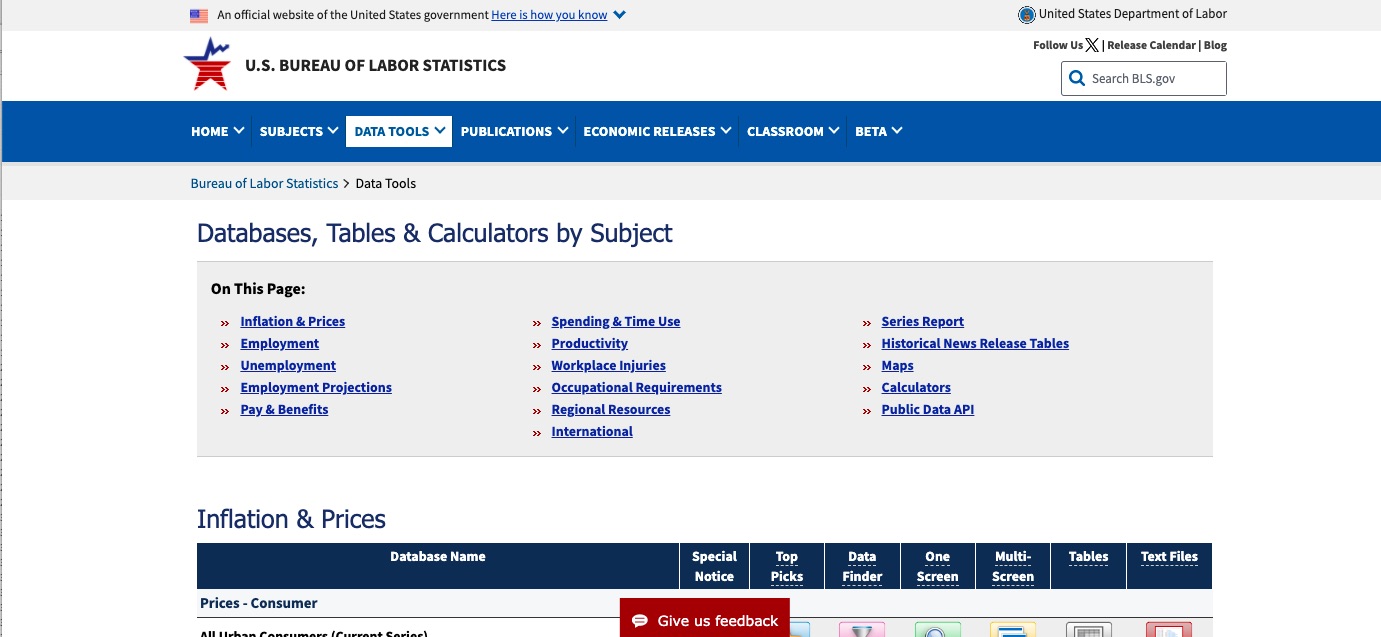 Screenshot from U.S. Bureau of Labor Statistics, February 2024
Screenshot from U.S. Bureau of Labor Statistics, February 202418. FiveThirtyEight
It has data on politics, sports, science and health, economics, and culture.
This site also encourages you to create stories and visualizations using its data.
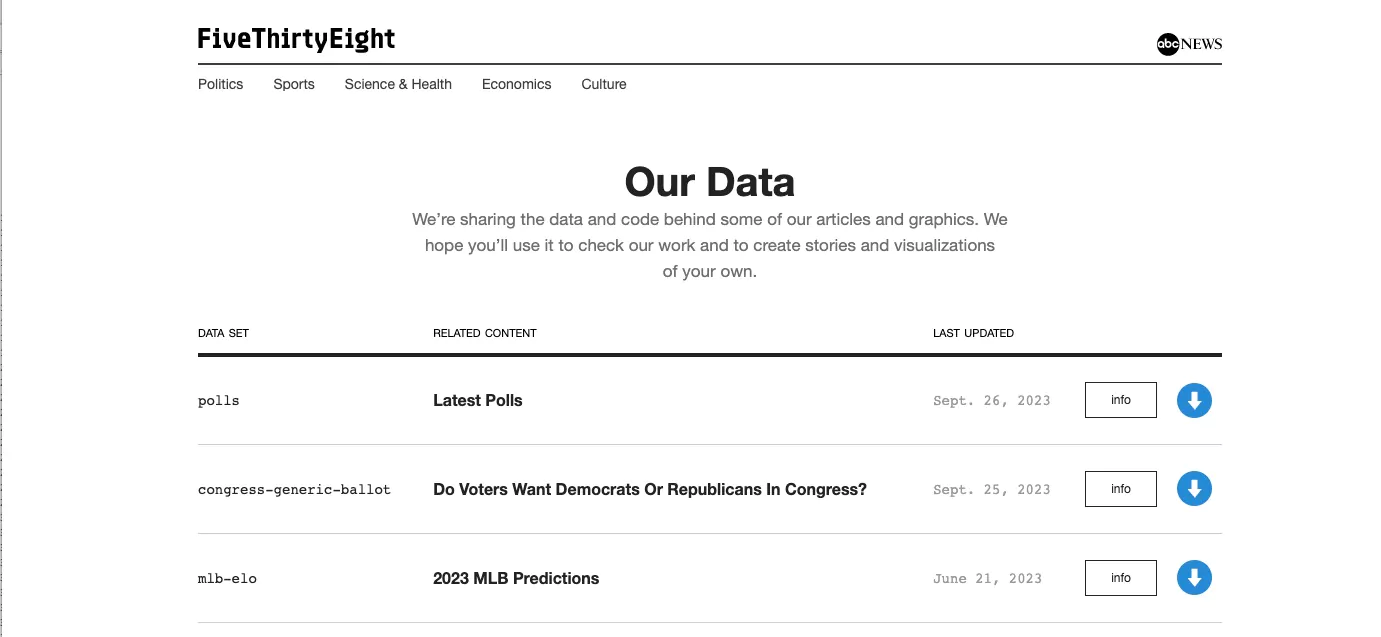 Screenshot from FiveThirtyEight, February 2024
Screenshot from FiveThirtyEight, February 202419. Group Lens
Group Lens has 12 available datasets (some of which are listed below in the image) that are useful for more niche projects. Some datasets are over a decade old.
You can get a lot of information on books and films here.
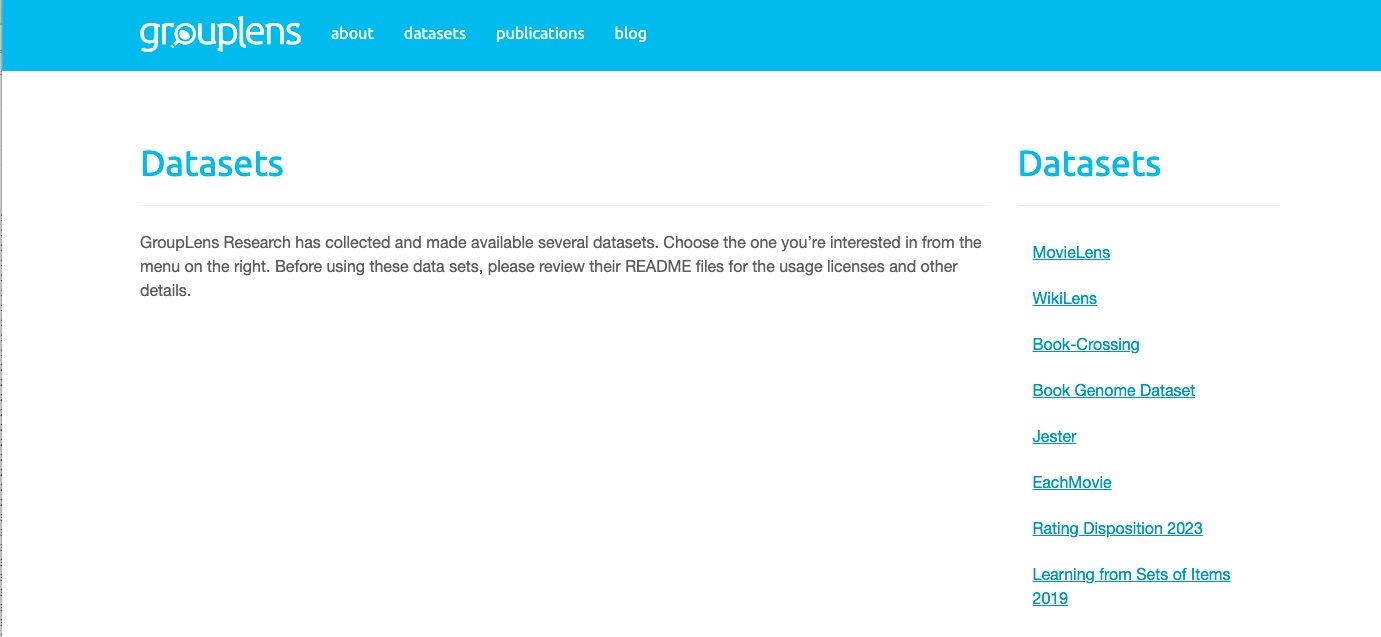 Screenshot from Group Lens, February 2024
Screenshot from Group Lens, February 202420. Amazon Web Services’ Registry Of Open Data
This service lets you share your data with others via the cloud. You can analyze available data and build on top of it using multiple proprietary Amazon products.
Users who want to store their datasets have access to a scholarship fund to pay for storage if they meet certain criteria.
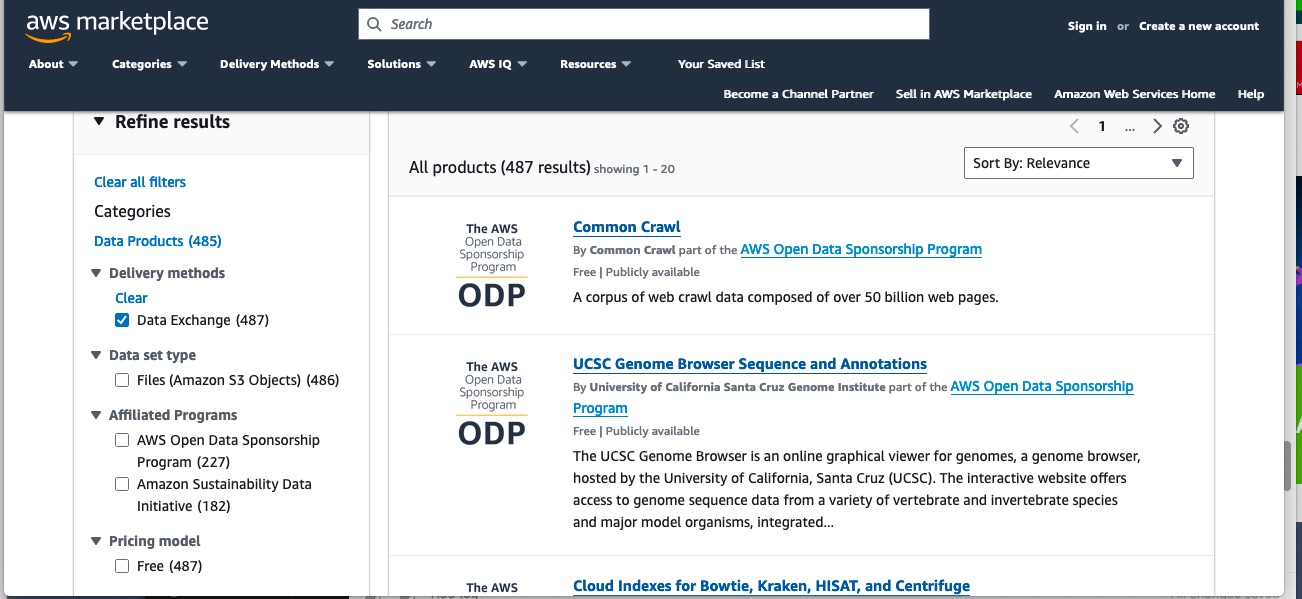 Screenshot from AWS, February 2024
Screenshot from AWS, February 202421. Global Health Observatory Data
This dataset is the World Health Organization’s repository of health statistics for its 194 member states with over 1,000 indicators.
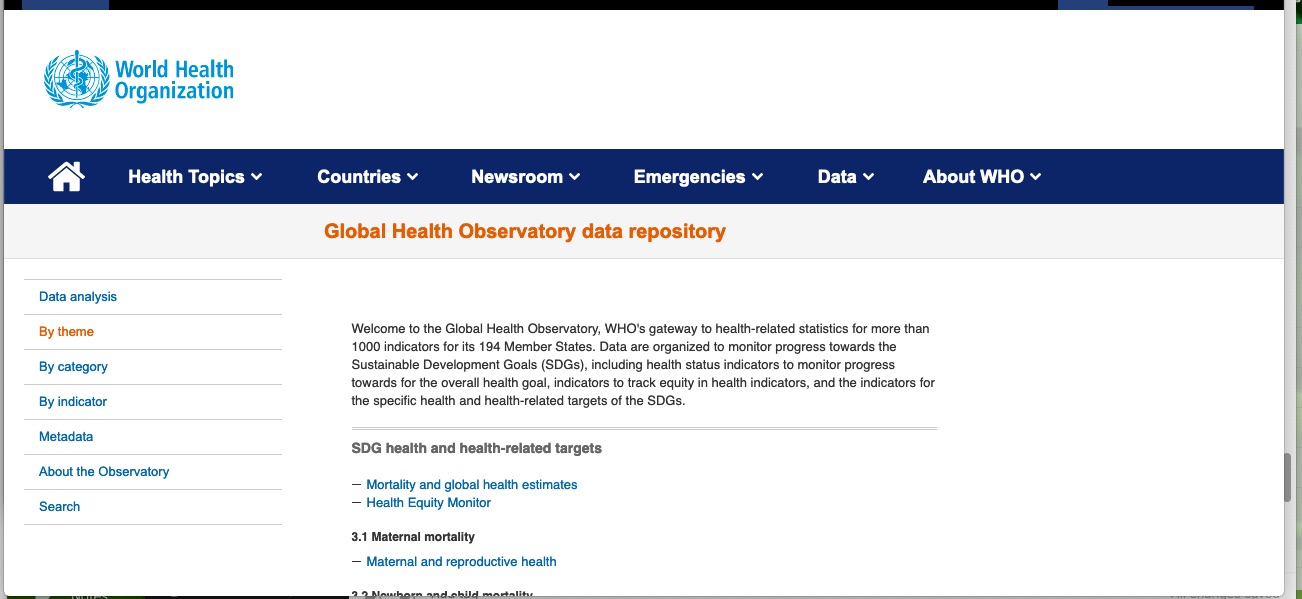 Screenshot from World Health Organization, February 2024
Screenshot from World Health Organization, February 202422. Bureau Of Land Management National Datasets
This U.S.-centric dataset contains information on public land management and stewardship, including maps, oil and gas statistics, and more.
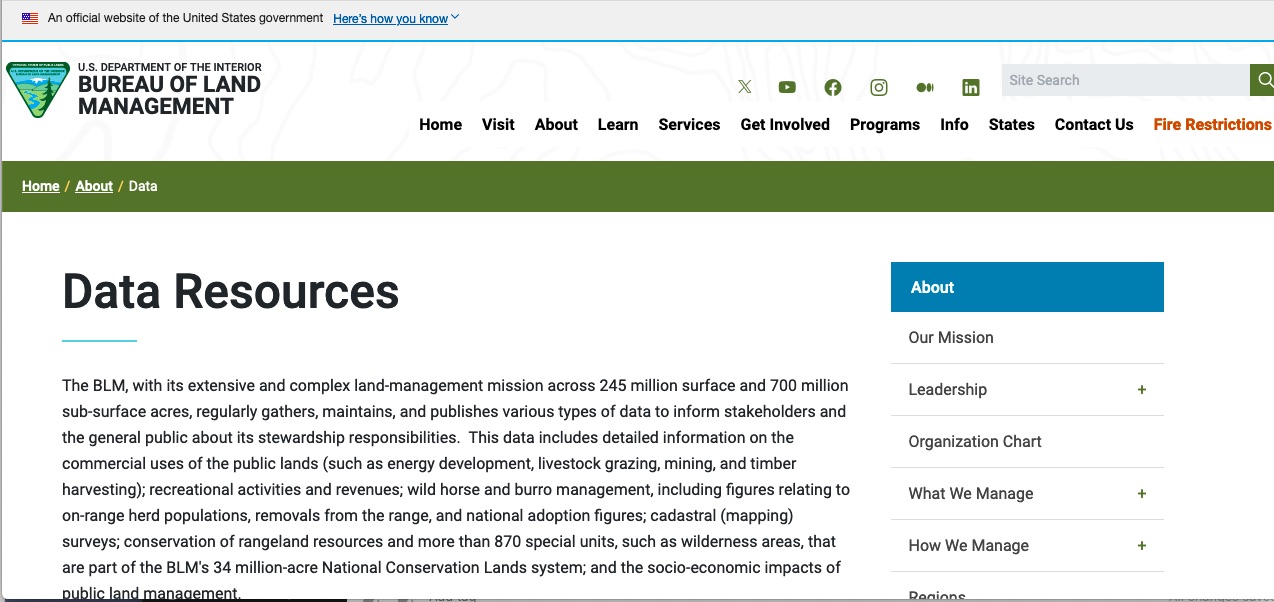 Screenshot from Bureau of Land Management National Datasets, February 2024
Screenshot from Bureau of Land Management National Datasets, February 202423. AfDb Data Finder Repository
This is a tool for accessing data regarding socio-economic and infrastructure figures within the whole of Africa, using 10 datasets.
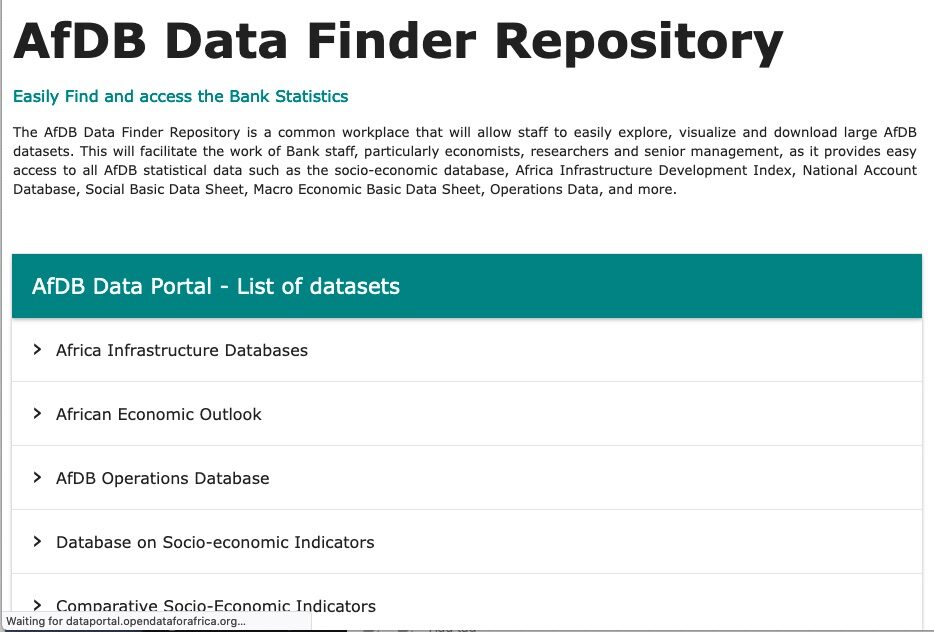 Screenshot from AfDB, February 2024
Screenshot from AfDB, February 202424. ADB Data Library
This data library holds publicly available data from the Asian Development Bank. It utilizes 273 datasets.
Note that it is not limited to Asian-specific countries. It holds both private and public sector data, including information on climate change, gender, industry and trade, etc.
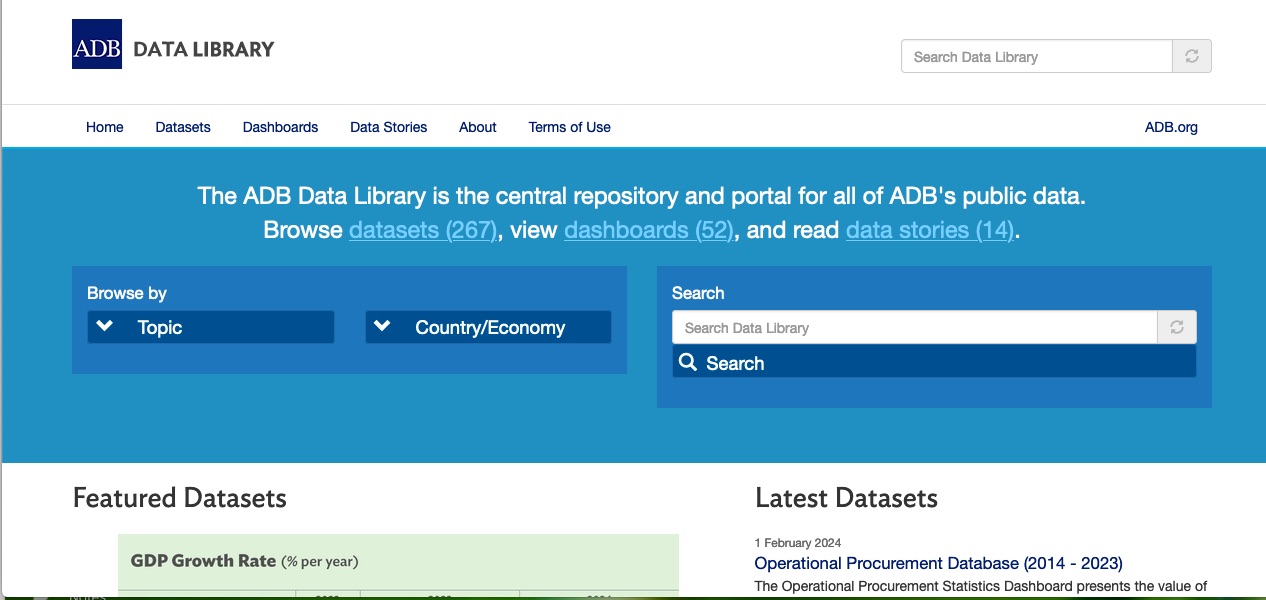 Screenshot from ADB, February 2024
Screenshot from ADB, February 202425. Antarctic Datasets
This dataset repository lists all 14 publicly available Antarctic datasets. It mainly focuses on information about the Antarctic glaciers and was last updated in 2020.
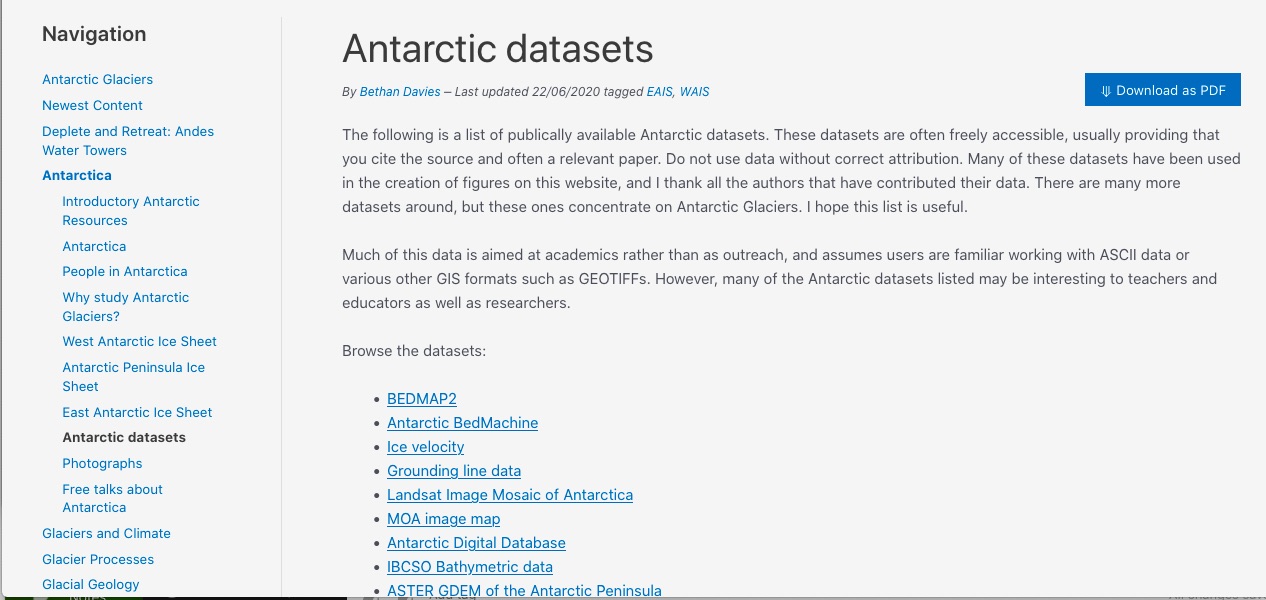 Screenshot from Antarctic, February 2024
Screenshot from Antarctic, February 202426. Latin American Data Bank
This contains data from the Roper Center For Public Opinion Research, focused on Latin America and the Caribbean. It has public opinion data going back as far as the 1950s.
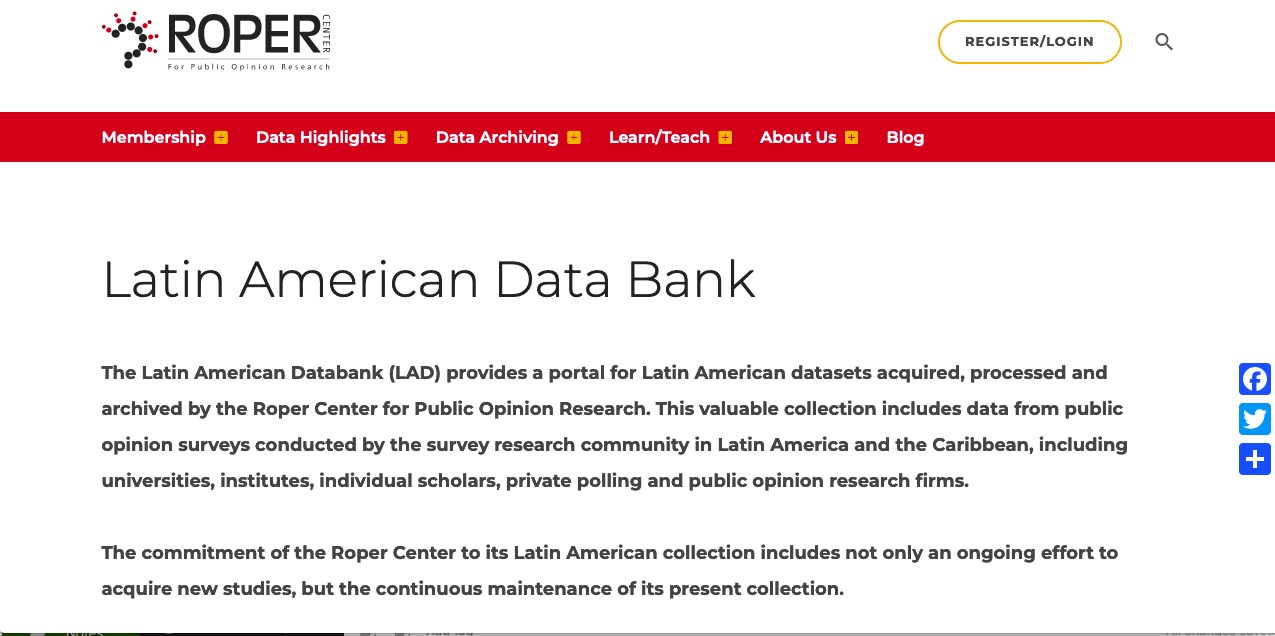 Screenshot from Latin America Data Bank, February 2024
Screenshot from Latin America Data Bank, February 202427. IMDb Non-Commercial Datasets
This dataset contains subsets of IMDB data that are refreshed on a daily basis.
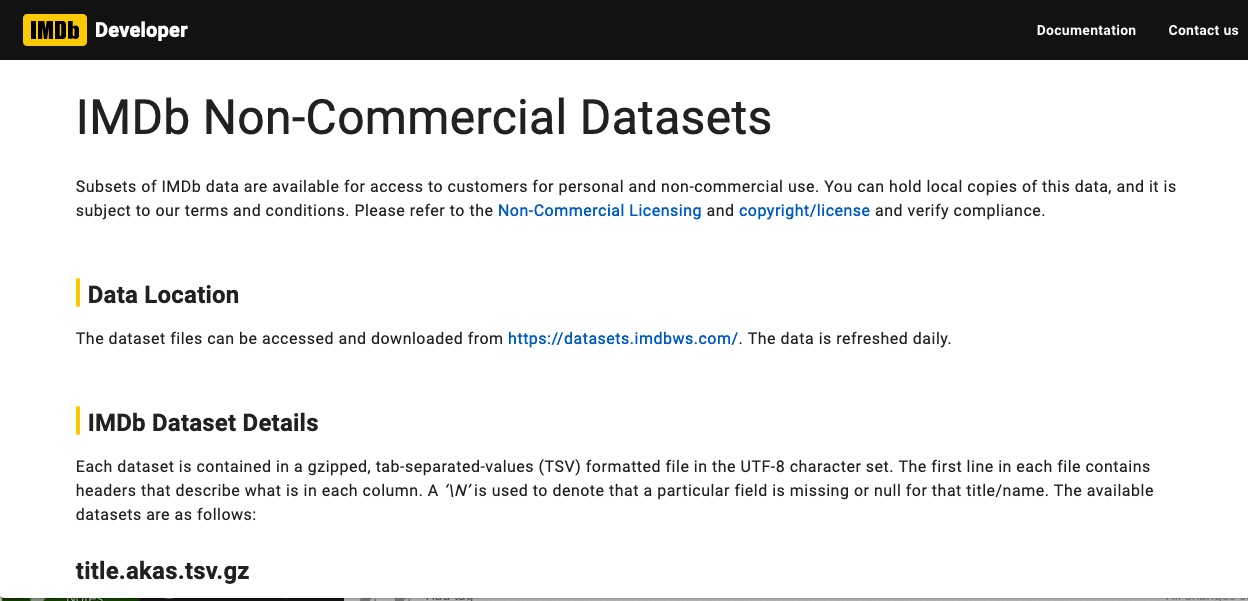 Screenshot from IMDB, February 2024
Screenshot from IMDB, February 202428. The Internet Archive/Wayback Machine
The Internet Archive Wayback Machine is a service that provides access to archived versions of web pages. Currently, the archive has indexed over 866 billion web pages, along with millions of other text, video, audio, image, and software sources.
It also offers a few APIs to help developers fetch more information.
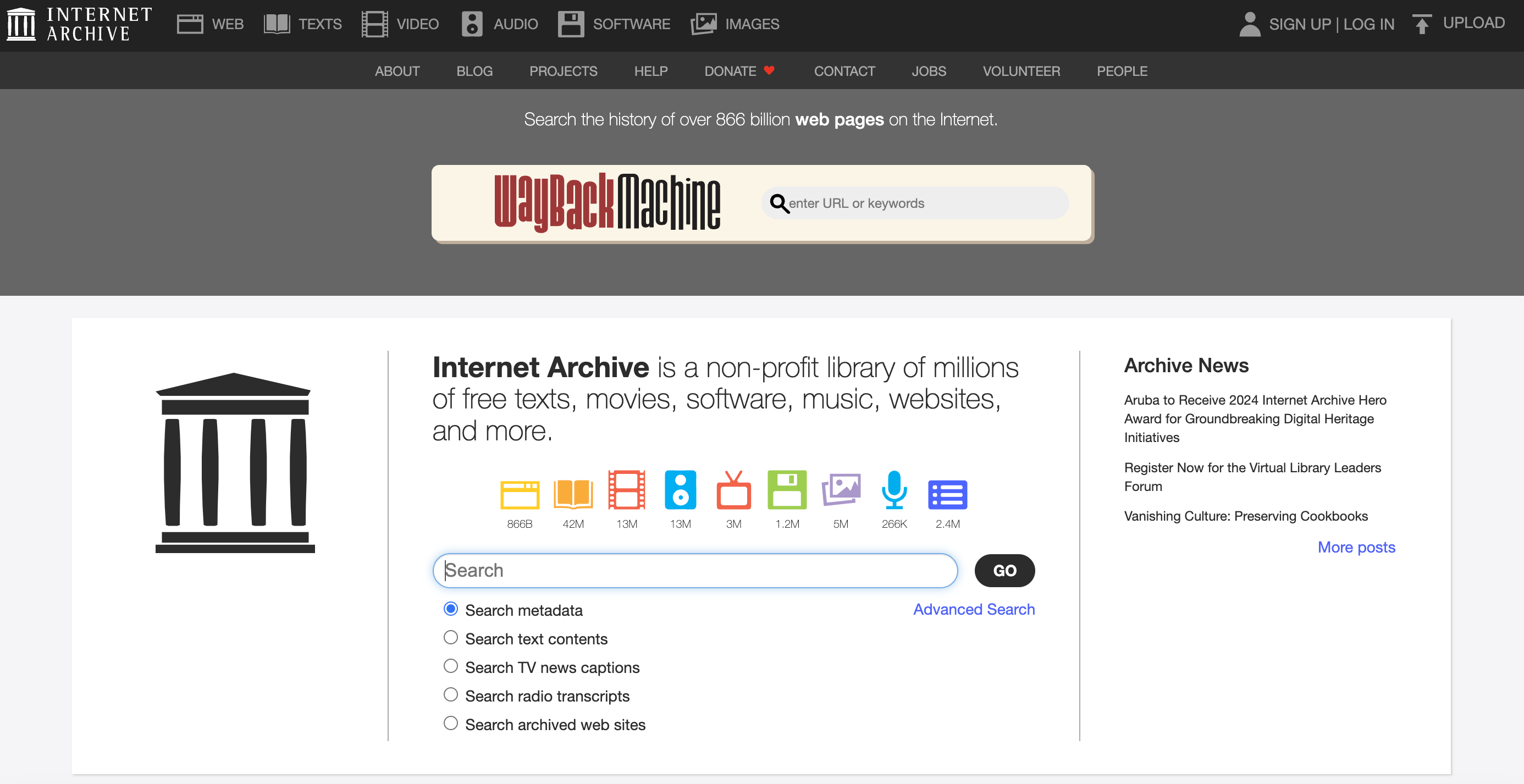 Screenshot from archive.org, October 2024
Screenshot from archive.org, October 2024Last but certainly not least…
I’d like to mention a great list of 41 sources for free images to go along with all this data, so definitely check that out.
Key Takeaways
Think of this list as more than just a collection of free data sources; it’s a powerful tool that can help you create data-driven campaigns, stay ahead of trends, and guide your strategies.
While readily accessible, it’s important to approach all information with a critical eye. Remember to verify sources, fact-check claims, and consult with industry experts when needed.
By combining the power of free data with responsible research practices, you can make well-informed decisions that lead to success.
More Resources:
- 23 Great Search Engines You Can Use Instead of Google
- 10 Best YouTube Keyword Tool Alternatives
- Keyword Research: An In-Depth Beginner’s Guide
Featured image: ra2 studio/Shutterstock





